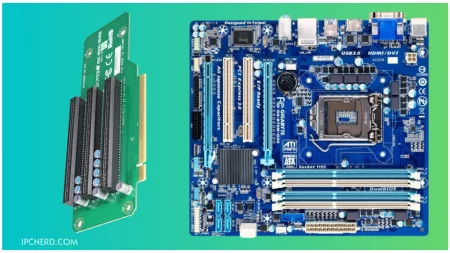
If a company makes too many products its customers don’t need, it can spell trouble for the business. This article delves into why Intel has chosen to stop the production of motherboards and what the future holds for this once-successful manufacturing corporation.
Why Intel Stopped Making Motherboards
Intel has been making motherboards for over 30 years, but they have recently stopped producing them to focus on processors. They are still selling CPUs, but they no longer produce motherboards.
This decision was made because they believe that the motherboard is not a critical component of the computer and can be replaced by a processor.
Intel believes this decision will allow them to focus on their core products and improve their overall performance. They also feel that it will allow them to create more innovative products.
What was Intel’s reasoning behind discontinuing the production of motherboards?
Intel announced in early 2018 that it would discontinue the production of motherboards. The company cited a slowdown in growth for its PC market as one of the reasons for the decision. Intel’s decision surprises many, as the company has long been known for its high-quality motherboards.
Some believe that Intel is losing market share to competitors like AMD and ASMedia.
Others suggest that there are simply too many options available now, making it harder for buyers to find a motherboard that meets their needs. Whatever the reason, Intel’s decision to phase out motherboard production will likely have a big impact on the market.
How is Intel responding to the motherboard shortage?
Intel has had a motherboard shortage for some time, and the company has announced that it will no longer manufacture motherboards.
Intel also said it is working on other solutions to try and mitigate the motherboard shortage. This move by Intel surprises many people, as the company has been known for making high-quality motherboards.
It is unclear what caused the motherboard shortage, but one possible explanation is that there are simply not enough customers buying them. Another possibility is that Intel can no longer produce quality motherboards at a cost that makes sense.
In any case, this announcement will likely lead to increased motherboard prices and may impact the availability of these products in stores.
What does Intel recommend for replacing their motherboard?
Intel recommends users replace their motherboard if they experience any of the following problems:
- System instability or crashes
- Blue Screen Of Death (BSOD)
- Memory issues, such as random errors or slow performance
If your system is experiencing any of these issues, it may be time to replace your motherboard. There are several different Intel motherboards available on the market, so make sure to find one that best suits your needs.
When choosing a new motherboard, some factors include CPU type, form factor, and required features.
Impact of Intel on the Motherboard Market
Intel has been the primary chipset maker for motherboards for many years now. They’ve greatly impacted the market, and their absence will be felt.
Their main competitors are AMD, ASMedia, and Qualcomm. Intel’s main competitors make motherboards that use their chipsets which perform better than Intel’s.
ASMedia is the biggest competitor to Intel in the motherboard market. They make very high-end motherboards using their chipsets and have a lot of competition from other companies such as MSI, Gigabyte, and Asus.
Intel’s main advantage in the motherboard market was its dominant position in processors. This gave them a lot of leverage with motherboard manufacturers who were forced to use their chipsets to get processors.
However, this leverage is slowly waning away with entering the processor market and Qualcomm starting to produce better chipset designs.
Intel also made much money from patent licensing fees and chip sales to other manufacturers.
This has slowed down a bit over the last few years as AMD has started licensing some of these patents, and ASMedia has been buying patents from other manufacturers. This could result in more competitive pricing in the future as companies jockey for position.
Conclusion
Intel has announced that it will no longer be manufacturing motherboards, which is a big blow to the PC market. Intel cited low demand as the main reason for this decision, but others say that Intel’s monopoly on the motherboard market led to higher prices and less innovation.
Either way, this news signals the end of an era and could lead to more competition in the PC industry. So what does this mean for you? If you’re looking to buy a new computer, your options will be more limited. But don’t worry — there are still lots of great computers out there that use Intel processors.







